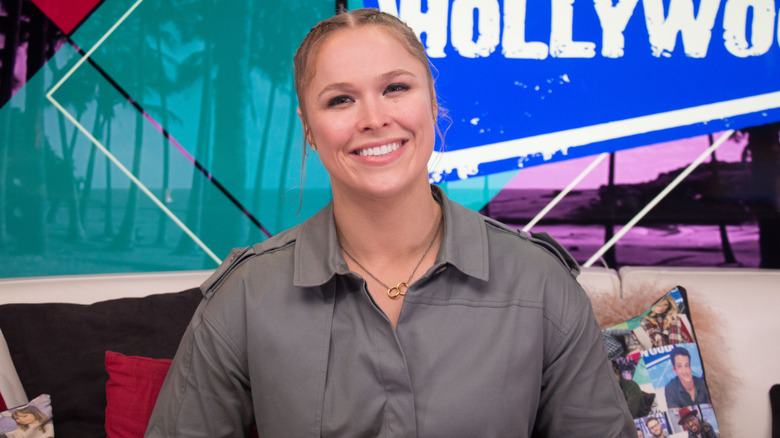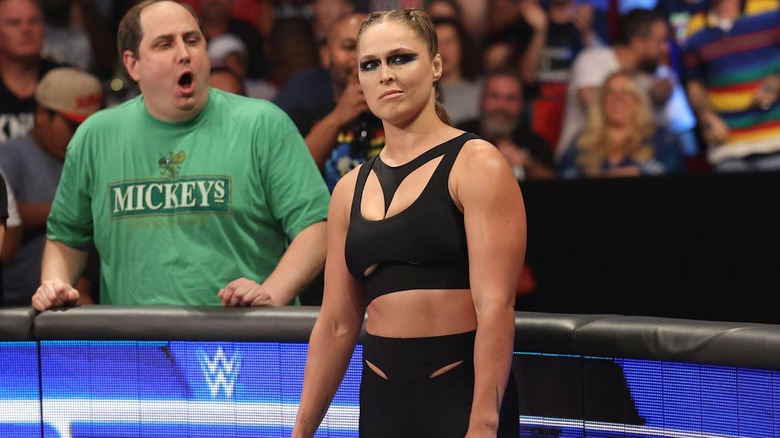Former WWE Star Ronda Rousey Opens Up About Struggle With Bulimia During Youth
Ronda Rousey has reached the pinnacles of both mixed martial arts and professional wrestling. A six-time national champion judoka, 2008 Olympic bronze medalist, UFC Women's Bantamweight Champion and Hall of Famer, and three-time WWE Women's Champion, Rousey has just about done it all.
But, as a 16-year-old, she struggled with bulimia and had to battle through the stigma of being a muscular young woman at a time when it wasn't widely accepted.
"I had to be a weight on a deadline very often, and it's not really a weight that I could healthily stay at," said Rousey on "The Diary Of A CEO" podcast. "I would have to cut weight to get there and it started to give me a really unhealthy relationship with food. I would hoard food while I was cutting weight, like candy bars and stuff, like that, and then after I made weight, I would gorge myself on it."
Rousey added that she didn't know that what she was doing would be harmful to her long-term. "I didn't know anything. I didn't have any resources to help me out and so it just spiraled into a disorder."
She remembered the first time she forced herself to throw up out of guilt for eating a chocolate shake. Her childhood coach said she deserved it for training, and that she needed to relax and enjoy the shake as a treat.
"I felt so guilty and I had to make weight that weekend," she said. "There's no way I would be able to make it and so I made myself throw up. I thought it was a one-time thing but the next time I ate too much, I felt like it was the only thing I could do."
It wasn't cool for little girls to be muscular
Around the same time, Ronda Rousey was being teased by her peers in school for being as muscular as she was. She detailed in her book, "Our Fight," that she was called "Miss Man" by her classmates, and poked and prodded routinely. That turmoil pushed her to try to cover up her appearance as best she could.
"It wasn't cool for little girls to be muscular back then," Rousey explained. "Before I dropped out at 16, I was really muscular and people would grab at my arms and make fun of me all the time to the point that I would just wear a zip-up hoodie no matter how hot it was."
The trauma stuck with Rousey for years but she aimed to turn these negatives into positives, becoming a role model for young women to be proud of their muscular bodies.
"When I got older, trying to fight that idea that being muscular is masculine was something that became important to me," she said. "If you were a teenage girl in the early 2000s, it was a pretty unhealthy standard that was presented to us. I didn't fit the very narrow scope of what was considered attractive at the time."
Rousey is proud that such a perception seems to have changed, which makes the hardships she and others like her endured worth it.
"Now it's considered really cool for women to have muscles," she exclaimed. "Now all of the models have stomach definition and are doing boxing and all this stuff and want to look toned but that wasn't the case back then."
If you use any of the quotes in this article, please credit The Diary Of A CEO and provide a h/t to Wrestling Inc. for the transcription.

